Search Results
Showing results 581 to 600 of 719

Bouncing Balloons
Source Institutions
In this sports-themed engineering activity, learners create super bouncy balls out of balloons. Learners brainstorm, test their designs, and share results.

Make a Light Fountain
Source Institutions
In this optics activity, learners make a "light fountain" from a clear plastic bottle, flashlight, and other simple materials.
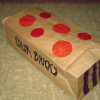
Assembly Line
Source Institutions
In this activity, learners work individually to assemble a product and then work in teams to design, construct, test, and redesign an assembly line process whose product must meet specific quality con
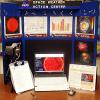
Space Weather Action Center
Source Institutions
In this interdisciplinary activity, learners create a Space Weather Action Center (SWAC) to monitor solar storms and develop real SWAC news reports.

From Here to There
Source Institutions
In this water activity, learners discover ways to move water across the water table.

Effect of Environment on Plant Growth
Source Institutions
The purpose of this plant biotechnology activity is to demonstrate the effect of changes in the environment on the growth and fertility of landscape grasses and crop grasses such as wheat and rice.
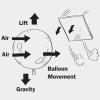
Sky Floater Challenge
Source Institutions
In this design challenge activity, learners make a balloon hover at eye level for five seconds, and then make it move by creating air currents.
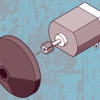
Motorized Car
Source Institutions
In this design challenge activity, learners build a car that uses a battery-operated motor to "drive" at least ten feet.
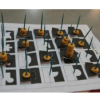
Fruity-Glows: Pictures of Health on a Microarray Canvas
Source Institutions
In this activity (page 12), learners apply the concepts of pixilation and pointillism to the world of biomedical science.
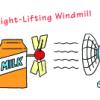
Blowin' in the Wind
Source Institutions
In this environmental engineering activity, learners build windmills using everyday items. The first challenge is to build windmills that spin when placed in front of a fan.
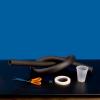
Build a Roller Coaster
Source Institutions
Learners design and build a roller coaster using simple materials. Learners experiment with potential and kinetic energy to get a marble to follow a track into a cup.

Puppet Power
Source Institutions
In this mechanical engineering activity, learners design shadow puppets with moving parts and use them to tell stories.

Sustainable Grazing
Source Institutions
In this activity, learners investigate the food, water, and space needs of common livestock animals.
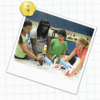
Grab and Go
Source Institutions
In this engineering activity, learners design and build a mechanical arm to lift a small item.

How to Test The Strength of Shapes
Source Institutions
In this activity, learners explore the strength of different shapes. Fold paper into triangles, squares, and other shapes, then experiment with how much weight they can hold.

Soccer Kicks
Source Institutions
This activity (on page 2 of the PDF under SciGirls Activity: Soccer Ball Kick) is a full inquiry investigation into transfer of motion.

Prepare for a Construction Zone Field Trip
Source Institutions
In this activity, learners explore work, forces, simple machines, and construction. This lesson guide includes simple ways to demonstrate these principles as well as hands-on activities.
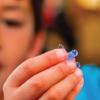
Delivery Capsules
Source Institutions
Learners make self-assembled polymer spheres as a model for the lipid nanoparticles found in COVID-19 mRNA vaccines.
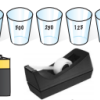
Water Wire: Electricity Flowing Through Water
Source Institutions
In this activity on page 10 of the PDF, learners detect the amount of energy that can flow through a sodium chloride electrolyte solution with a light sensor.
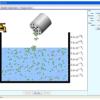
Salts & Solubility
Source Institutions
In this online interactive simulation, learners will add different salts to water and then watch the salts dissolve and achieve a dynamic equilibrium with solid precipitate.
